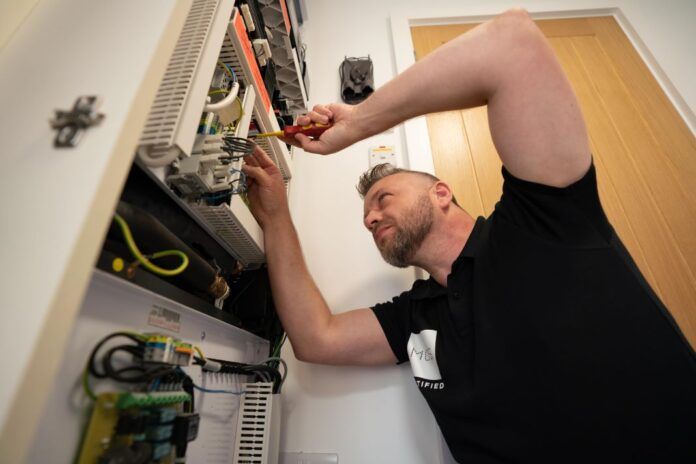
MCS (Microgeneration Certification Scheme) has announced fundamental changes to its Heat Pump Standard.
It was announced today that the existing Heat Pump Standard (MIS 3005) will be split into two standards – one for Heat Pump Design (MIS 3005-D) and one for Heat Pump Installation (MIS 3005-I).
The changes come following the closure of the Domestic Renewable Heat Incentive (DRHI) on 31st March 2022 and will be mandatory from 1st April 2022.
MCS said it intended the new standards to make the market more accessible, giving installers the opportunity to either focus on heat pump design or heat pump installation as per their skillsets.
The split will also facilitate the predicted increase in contractors who can install heat pumps and work alongside independent heat pump designers.
The national standards body for renewables has outlined several key considerations for its installers from 1st April 2022. These included if a company is MIS 3005 certified for both design and installation, they can choose to remain as they are, or switch to become a certified designer (MIS 3005-D) or installer (MIS 3005-I) at their next certification surveillance assessment.
Any contractor (design or installer) who holds the customer contract can register a system on the MCS Microgeneration Installation Database (MID).
Compliance certificates were required as part of the DRHI but, as it is closing in March 2022, they will no longer be required.
The new standards will not affect existing heat pump contractors, as by default, they are certified for both heat pump design and installation. The certifications will carry over until their next certification surveillance assessment, when installers can choose to be certified for design, installation, or both. MCS added.
Ian Rippin, chief executive of MCS, said: “This is a positive outcome for installers as we approach the end of the DRHI. The diversification of the new Heat Pump Standards will enable the industry to deliver the best service for customers and accommodate contractors who wish to streamline their skillset.
“Our change reflects the market. It is a move in the right direction as we look to encourage more installers into low-carbon heating and, in turn, increase the adoption of heat pumps in UK homes and non-domestic buildings.”
